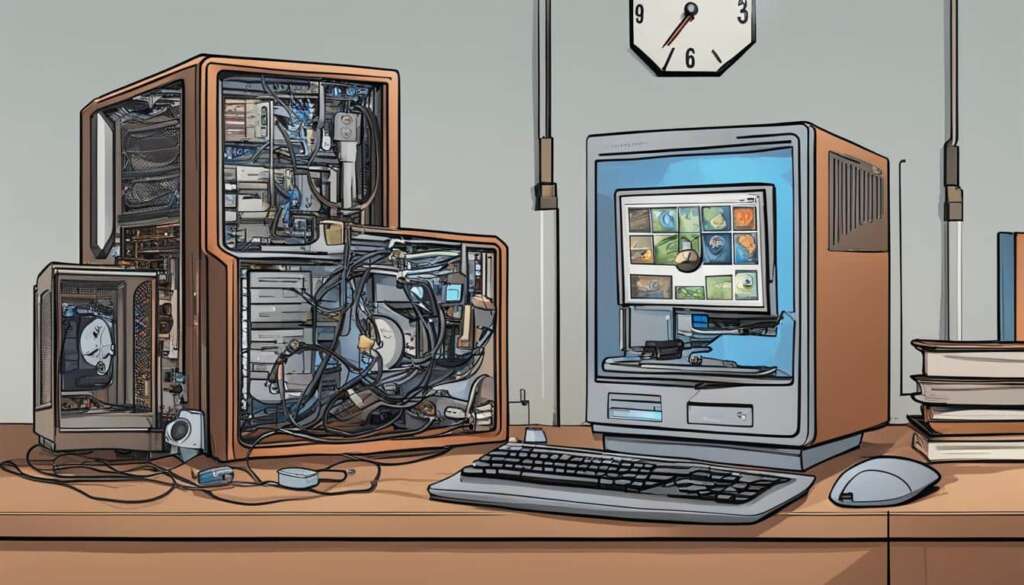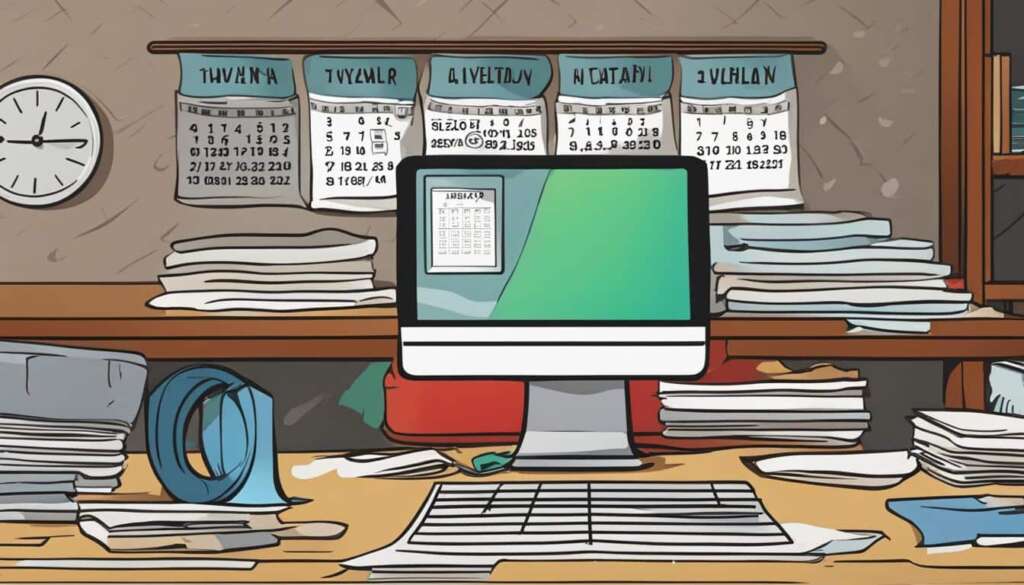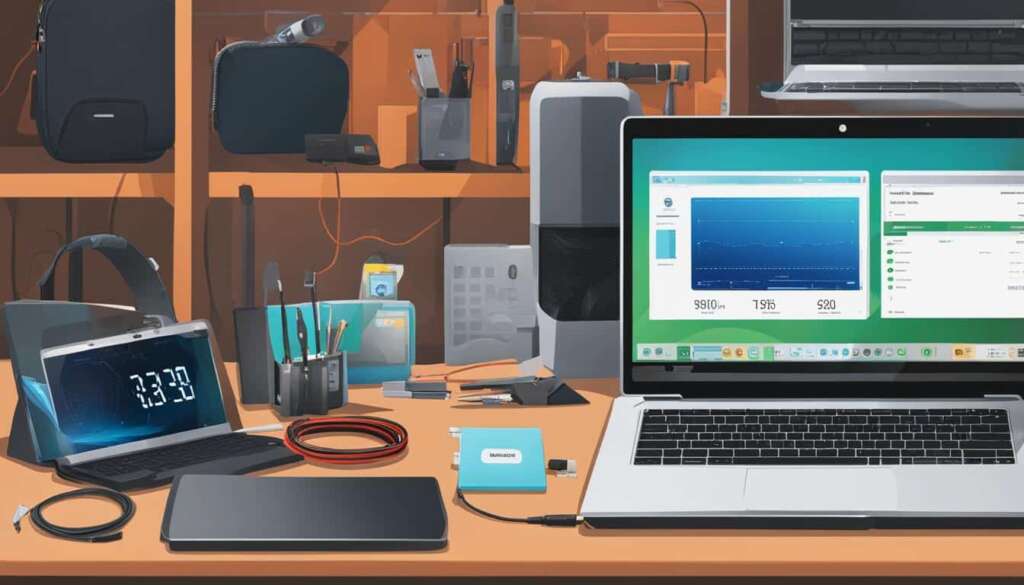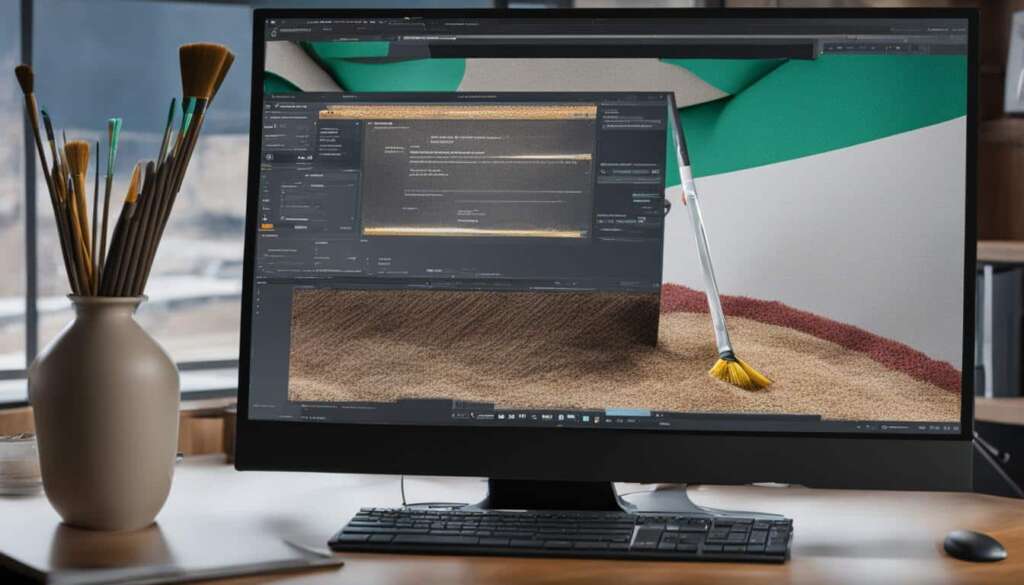Table of Contents
When it comes to purchasing a new PC, one of the most common questions that arises is, “How long does a PC last?” Whether you’re investing in a desktop computer or a laptop, understanding the average lifespan of a computer can help you make informed decisions about your technology needs.
On average, desktop PCs have a lifespan of 5 to 8 years. However, this can vary depending on several factors such as upgrades, maintenance, and usage.
Regular maintenance is crucial for extending the lifespan of your PC. Dust accumulation can cause performance issues and even damage internal components. By regularly cleaning your PC and conducting proper maintenance, you can ensure that it operates optimally for a longer period.
On the other hand, laptops generally have a shorter lifespan compared to desktops. Typically, laptops last between 3 to 5 years, although their utility may decline as the components become less capable over time.
It’s worth noting that the longevity of a computer also depends on the brand and hardware. For example, Macs are known for their durability and often outlast their PC counterparts. Additionally, Macs tend to have better support systems in place for software and maintenance.
Ultimately, the price of a new computer or laptop can vary greatly depending on features, brand, and specifications. It’s important to consider your specific needs and budget when deciding to invest in a new PC.
In the next sections, we will explore the signs that indicate it’s time to upgrade your PC, tips on whether to upgrade or replace your computer, and how to prolong the lifespan of your PC.
Signs it’s Time to Upgrade Your PC
If you’ve been using your computer for a while, you may start experiencing signs that it’s time for an upgrade. Here are some indicators that your PC is aging and may need to be replaced:
- Slow performance: If your computer is taking longer to boot up, shut down, or load applications, it may be a sign that it’s struggling to keep up with modern software and hardware demands.
- Outdated operating systems and applications: When your computer is no longer compatible with the latest software updates and applications, it can lead to decreased performance and potential security vulnerabilities. Upgrading your PC ensures that you have access to the latest features and protections.
- Noisy fans: If you notice that your PC’s fans are running loudly, especially during light use, it could be a sign that the components are working harder to cool down the system. This could indicate that your PC is nearing the end of its lifespan.
- Compatibility issues: When you try to upgrade your computer’s hardware, such as adding more RAM or a faster graphics card, and encounter compatibility issues, it may be a sign that your PC is not equipped to handle newer technologies. This is a clear indication that it’s time to consider a new computer.
- Issues with multitasking: If your PC struggles to handle multiple applications running simultaneously or experiences lag and slowdowns when multitasking, it’s a sign that it’s no longer capable of keeping up with your workload.
“Upgrading your PC ensures that you have access to the latest features and protections.”
While repairs may seem like a cost-effective option at first, it’s important to consider the overall impact on productivity, as well as the potential for additional support costs in the long run. Basic maintenance, such as performing software updates and keeping your computer clean from dust and debris, can help prolong its lifespan. However, when you start experiencing these signs, it’s a clear indication that upgrading your PC or considering a replacement is the best course of action.
Should I Upgrade or Replace My PC?
When faced with an aging computer, the decision of whether to upgrade or replace it can be a daunting one. There are cost considerations, compatibility issues, and the overall longevity of the machine to take into account. Let’s explore the options and factors you should consider when deciding whether to upgrade or replace your PC.
Upgrading certain components of your PC, such as RAM or storage, can extend its lifespan and improve performance. However, it’s essential to consider the cost of these upgrades. Upgrading more significant components like the motherboard or CPU can lead to compatibility issues and may not be worth the expense.
For many PC owners, the question of repairing versus replacing comes into play. Repairing a computer can initially seem like a more affordable option, but it’s important to consider the downtime and continual support costs. The expense of repairing an older PC can often surpass the cost of purchasing a new one, making replacement a more logical choice when the computer is nearing the end of its practical lifespan.
Another crucial aspect to consider is the potential loss of productivity during repairs. Separating from your work machine for an extended period can result in decreased efficiency and additional expenses. It’s essential to weigh these factors when deciding whether to repair or replace your PC.
Factors such as outdated operating systems, slow performance, and compatibility issues can also influence the decision to upgrade or replace a computer. If your PC struggles to run new software or experiences longer application load times, it may be time to consider an upgrade or replacement.
To help you make an informed decision, let’s summarize the key points:
- Upgrading specific components like RAM or storage can extend your PC’s lifespan, but consider the cost.
- Repairing a computer may be cheaper initially, but the downtime and continual support costs should be taken into account.
- The cost of repairing an older PC can exceed the cost of purchasing a new one.
- Weigh the potential loss of productivity during repairs when considering a repair.
- Outdated operating systems, slow performance, and compatibility issues can make upgrading or replacing a computer necessary.
Ultimately, the decision to upgrade or replace your PC depends on your specific circumstances, budget, and long-term needs. Considering the cost of repairs, potential compatibility issues, and the overall condition of your computer can help you make the most cost-effective and practical choice.
Example Table: Upgrade or Replace?
| Considerations | Upgrade | Replace |
|---|---|---|
| Cost | Varies depending on the components needing an upgrade | New PCs range in price depending on features and specifications |
| Compatibility | May encounter compatibility issues with significant upgrades | Ensure compatibility with the latest hardware and software |
| Longevity | Can extend the lifespan of the PC with targeted upgrades | Guarantees a new and updated machine |
| Productivity | Minimal downtime during upgrades | Immediate access to a fully functional system |
| Future-Proofing | Might need further upgrades in the future | Latest hardware and software pre-installed |
Remember, each scenario is unique, and it’s crucial to evaluate your specific circumstances before making a decision. Weigh the costs and benefits of upgrading versus replacing, considering compatibility, price, and future needs. By doing so, you can make an informed choice that aligns with your budget and computing requirements.
How to Prolong the Lifespan of Your PC
To ensure your PC lasts as long as possible, a few simple maintenance tips can go a long way.
Regularly dusting your computer and keeping it free from excessive dust and debris is essential for prolonging its lifespan. Dust can clog the internal components and cause overheating, leading to potential hardware damage. Use a soft, lint-free cloth or an air canister to gently remove dust from the surface and vents.
Proper handling and care are also crucial. Avoid spills and accidents by keeping drinks away from your PC. For laptops, invest in a well-padded carry bag to provide extra protection during transportation. Preventing physical damage will significantly extend your computer’s life.
In addition, controlling the temperature and humidity of your computer’s environment is important. High temperatures can strain the components, while excessive humidity can lead to corrosion. Keep your PC in a cool, well-ventilated area and consider using a dehumidifier in humid environments.
Performing regular disk defragmentation and reformatting can optimize your PC’s performance and resolve performance issues. This process organizes your files and recovers disk space, resulting in faster and more efficient operation. Be sure to back up your important data before proceeding with any formatting or defragmentation.
Staying up to date with software updates and security measures is critical for maintaining your computer’s longevity. Software updates often include bug fixes, performance enhancements, and security patches that can protect your PC from vulnerabilities.
Avoid overworking your computer by running too many applications simultaneously. This can strain the hardware and cause it to overheat. Ensure you have sufficient RAM to handle your workload. Consider upgrading your RAM if your computer struggles with multitasking.
Lastly, pay attention to any signs of hardware issues, such as noisy fans or slow start-up times. These could indicate a problem that needs to be addressed promptly to prevent further damage. Additionally, take proper care of your laptop’s battery by keeping it plugged in when in use and avoiding overheating, as this can help extend its lifespan.
By following these PC maintenance tips and practicing good habits, you can significantly prolong the lifespan of your computer and enjoy its optimal performance for years to come.
FAQ
How long does a PC typically last?
The average lifespan of a desktop PC is 5 to 8 years. However, it depends on the upgrading components and maintenance.
What are the signs that it’s time to upgrade my PC?
Some signs that it’s time to upgrade your PC include slow performance, compatibility issues, difficulty running new software, and excessive noise from fans.
Should I upgrade or replace my PC?
The decision to upgrade or replace your PC depends on factors like cost, compatibility, and the overall condition of your computer. In some cases, it may be more cost-effective to replace it rather than repair it.
How can I prolong the lifespan of my PC?
To prolong the lifespan of your PC, it’s important to perform regular maintenance such as software updates, cleaning to remove dust and debris, and proper handling and care. Upgrading certain components like RAM or storage can also extend its lifespan.







